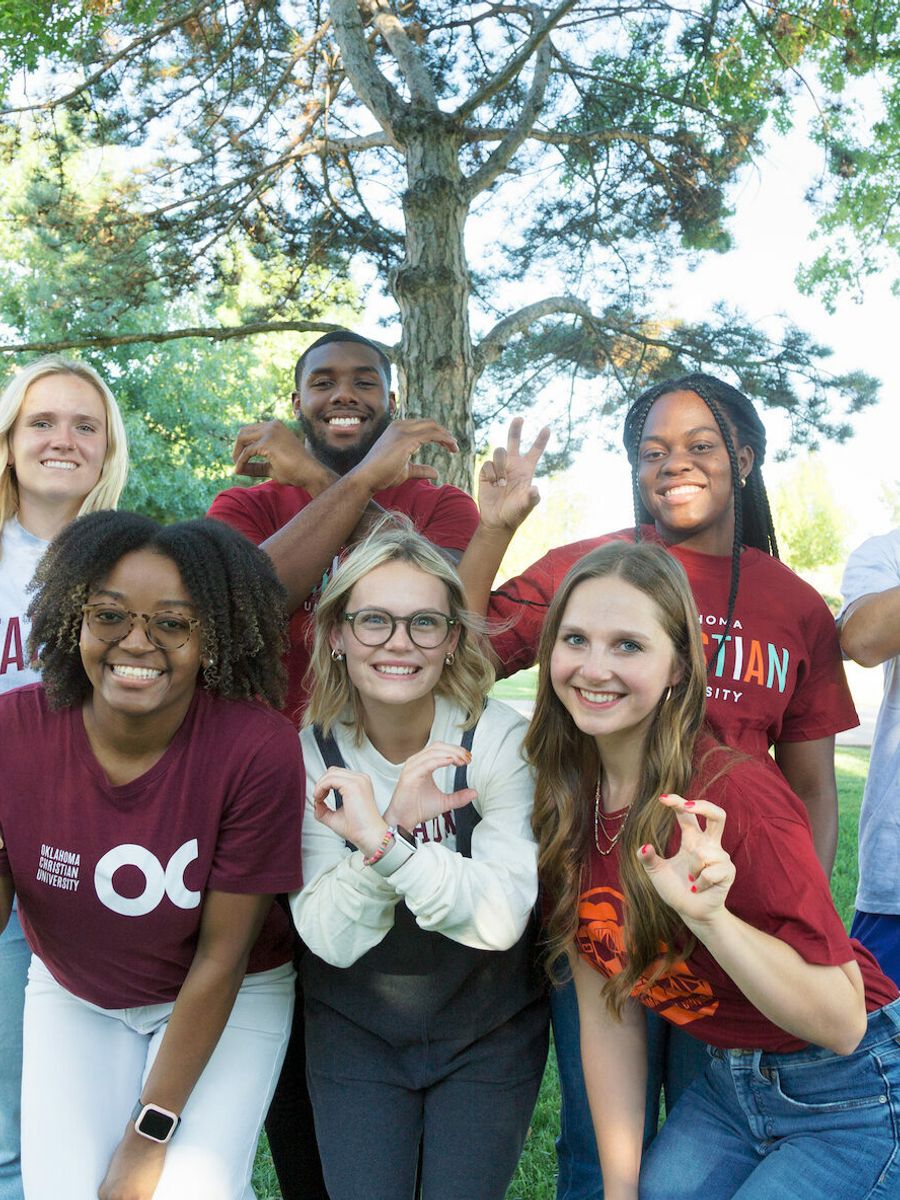79 hours
An OC graduate with a Bachelor of Science degree in Biochemistry will have:
- Active Faith: Develop mature Christian attitudes toward scholarship, intellectual honesty, and ethical conduct that promote a life-long appreciation for learning in biochemistry.
- Foundational Knowledge: Acquire a fundamental body of knowledge in the natural sciences, emphasizing biochemistry, chemistry, and physics.
- Information Literacy: Effectively identify, locate, and evaluate information needed for preparing a scientific paper, presentation, or project, primarily using biochemistry
resources. - Structured Reasoning: Understand the scientific method and use it to measure and evaluate experimental data in biochemistry, chemistry, and physics labs.
- Critical and Creative Thinking: Solve problems and think critically in both experimental and theoretical situations.
- Effective Communication: Communicate effectively the results of scientific research and study, primarily in biochemistry, chemistry, and physics.
- Personal, Social, and Global Stewardship: Participate in curricular and extracurricular activities that enhance learning and preparation for careers in the natural sciences, primarily in biochemistry.
Students must complete a minimum of 122 hours including the major, core, and minor if required. Elective hours may be needed to reach 122 hours.
4 HOURS MATHEMATICS
8 HOURS PHYSICS WITH LAB
- PHYS-1114 College Physics I or PHYS-2514 Physics I
- PHYS-1214 College Physics II or PHYS-2614 Physics I
21 HOURS BIOLOGY
- BIOL-1115 General Biology I: Cellular and Molecular Systems
- BIOL-2314 Genetics
- BIOL-2913 Biostatistics
- BIOL-3415 General Microbiology
- BIOL-4223 Molecular Biology
- BIOL-4301 Molecular Biology Lab
34 HOURS CHEMISTRY
- CHEM-1115 General Chemistry I
- CHEM-1215 General Chemistry II
- CHEM-3114 Analytical Chemistry I
- CHEM-3115 Organic Chemistry I
- CHEM-3124 Organic Chemistry II
- CHEM-4014 Biochemistry I and Lab
- CHEM-4113 Physical Chemistry I
- CHEM-4121 Physical Chemistry Experiments I
- CHEM-4123 Biochemistry II
5 HOURS SCIENCE SEMINAR
- GNSC-1711 Freshman Science Seminar
- GNSC-2711 Sophomore Science Seminar
- GNSC-3711 Junior Science Seminar
- GNSC-4712 Senior Science Seminar
7 HOURS TECHNICAL ELECTIVES CHOSEN FROM
- BIOL-1215 General Biology II: Comparative Physiology, and Ecology
- BIOL-2244 Human Anatomy
- BIOL-3115 Human Anatomy with Cadaver Dissection
- BIOL-3224 Human Physiology
- BIOL-3435 Pathogenic Microbiology
- BIOL-4213 Immunology
- BIOL-4411 Introduction to Research
- BIOL-4412 Undergraduate Research
- CHEM-2113 Introduction to Forensic Science
- CHEM-3214 Analytical Chemistry II
- CHEM-4213 Physical Chemistry II
- CHEM-4221 Physical Chemistry Experiments II
- CHEM-4313 Human Toxicology
- CHEM-4414 Inorganic Chemistry
- CHEM-4514 Forensic Analysis
- CHEM-4611 Research Methods
- CHEM-4612 Research Methods
- CHEM-4613 Research Methods
- CHEM-4713 Practicum in Forensic Science
- MATH-2214 Calculus II with Analytical Geometry
Recommendations as follows:
- Medical school track: Take Immunology, Human Anatomy with Cadaver Dissection, and Human Physiology
- Graduate school/industry track: Take Calculus II, Physical Chemistry II with Lab, Analytical Chemistry II, and Technical Writing
University Core Curriculum
B.S. - 51 Hours - Courses May Not Be Repeated Within Core
COMMUNICATION, 9 HOURS
MATHEMATICS, 3 HOURS
REQUIRED BIBLE, 6 HOURS
- BIBL-1023: Foundations: Introduction to the Good Life
- BIBL-1103: Story: Introduction to Christian Worldview
BIBLE ELECTIVES, 3 HOURS
CAPSTONE, 3 HOURS
POLITICAL SCIENCE, 3 HOURS
AMERICAN HISTORY, 3 HOURS
GREAT WORKS, 3 HOURS
- ARTS-2013: Survey of Visual Culture
- ARTS-2423: History of Photography and Motion Pictures
- ENGL-2213: Perspectives in Literature
- MATH-2123: The History of Mathematics
- MUSC-2013: Music Appreciation
- MUSC-2023: Jazz Appreciation
- MUSC-3213: Perspectives in World Music
SCIENCE, 6 HOURS
- One course must include a lab
PSYC, SOCIAL SCIENCES, FINE ARTS, OR FOREIGN LANGUAGE, 3 HOURS
- 3 hours from these areas: Fine Arts, Family Science, French, German, History, Japanese, Music, Political Science, Psychology, or Spanish
LIBERAL ARTS, 9 HOURS
- 9 hours from any liberal arts area

